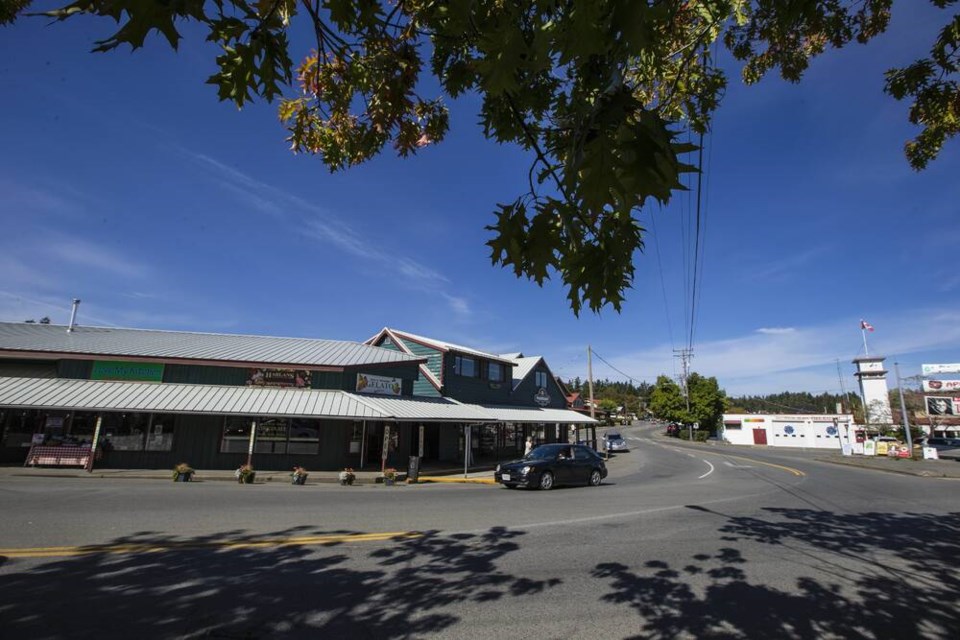The first question businesses or organizations on Salt Spring Island usually ask a potential employee is: “Do you have a place to stay?”
On the largest of the Gulf Islands, having accommodations can trump qualifications amid a severe shortage of housing for workers needed for its booming tourism, agricultural and arts economy — as well as essential services like its hospital and ferry system. “We’ve always been in a housing crisis,” said Jennie Coles, who runs Barb’s Cafe and Bakery. “But now it’s an acute housing crisis. There is just nothing here to rent, and if there is, you can have 30 people waiting for something that just isn’t affordable.”
Daniel Wood of the Salt Spring Island Cheese Company needs about 60 employees to keep operations going during the summer season, but is short of staff because of the sparse accommodations. Last week, three workers were staying in a guest room of the family home. Others commute from homes on Vancouver Island, if sa国际传媒 Ferries hasn’t cancelled sailings for lack of available staff.
“The housing shortage has been absolutely devastating to a lot of businesses, and just about everything else here,” says Wood.
Coles and Wood are among a growing group of Salt Spring Islanders calling themselves Salt Spring Solutions who are outraged that Finance Minister Selina Robinson did not include the island in the latest expansion of areas subject to sa国际传媒’s Speculation and Vacancy Tax.
The tax, introduced in the February 2018 budget, was created to help deal with sa国际传媒’s shortage of affordable housing by encouraging owners of vacant homes to rent or sell them. The speculation tax rate is 2% of a property’s assessed value for foreign owners and satellite families and 0.5 per cent for Canadian citizens or permanent residents.
Robinson included Duncan, Ladysmith, North Cowichan and Lake Cowichan in the latest round this month — as well as Squamish and Lion’s Bay, but not Salt Spring, despite islanders’ concerns about near-zero vacancy rates.
Rhonan Heitzmann, spokesperson for the Salt Spring Solutions, said islanders have been vocal about the urgent need for expanded local housing options since the community of 11,635 was first excluded from the tax in 2018.
“It’s an extreme housing crisis which has seen working residents leave in droves,” said Heitzmann, adding along with service workers and tradespeople, the community is bleeding essential-services personnel needed for everything from water-treatment systems to schools, the ferry service and Lady Minto Hospital, which also serves all of the surrounding Gulf Islands.
Salt Spring Solutions estimates 20% of the homes on Salt Spring stand empty for more than six months of the year. “That’s a lot of foregone revenue that could be helping Salt Spring Island to avoid becoming a hollowed-out executive and retirement community,” said Heitzmann. “No community is complete without a diversity of ages and incomes.”
Heitzmann said the hospital is among many organizations in the community feeling the housing pinch. He said a new emergency wing is now under construction, but workers building it are from off-island and living in tents and portables.
The hospital also has 35 staff vacancies that are proving hard to fill.
The “knock-on effects” of the housing shortage are everywhere, noted Heitzmann.
“The vibrant arts and farming cultures are failing to renew because island artists and farmers have all become elders — the younger generations simply cannot afford to live on the island, and working families and their kids are leaving the island due to the scarcity of housing options and the lack of economic opportunity,” he said.
Coles said she and husband and business partner Jason Coles are renters themselves and experience “constant anxiety” about losing their home — and possibly their café — if they ever have to start looking for a new place.
“You’re facing $2,500 a month for a two- or three-bedroom place. That’s a lot, and you start to think: ‘Can I get something in Crofton and commute every day?’ ” said Coles. “I worry about the staff because a lot of people are paying 50% of their wages just to rent a place.”
Heitzmann said for the province to exclude Salt Spring from the speculation tax area “is truly a slap in the face” for those who have been working for years to address the housing crisis.
In a statement Thursday, Robinson said the province wants to see how the recent expansion of the speculation tax to areas like the Cowichan Valley goes before looking at any more potential expansion.
Robinson noted that the province has funded 78 homes on Salt Spring since launching a 10-year housing plan in 2018. “But I know that, like many areas in the province, people on Salt Spring Island and the Southern Gulf Islands continue to face urgent affordable housing concerns.”
>>> To comment on this article, write a letter to the editor: [email protected]

